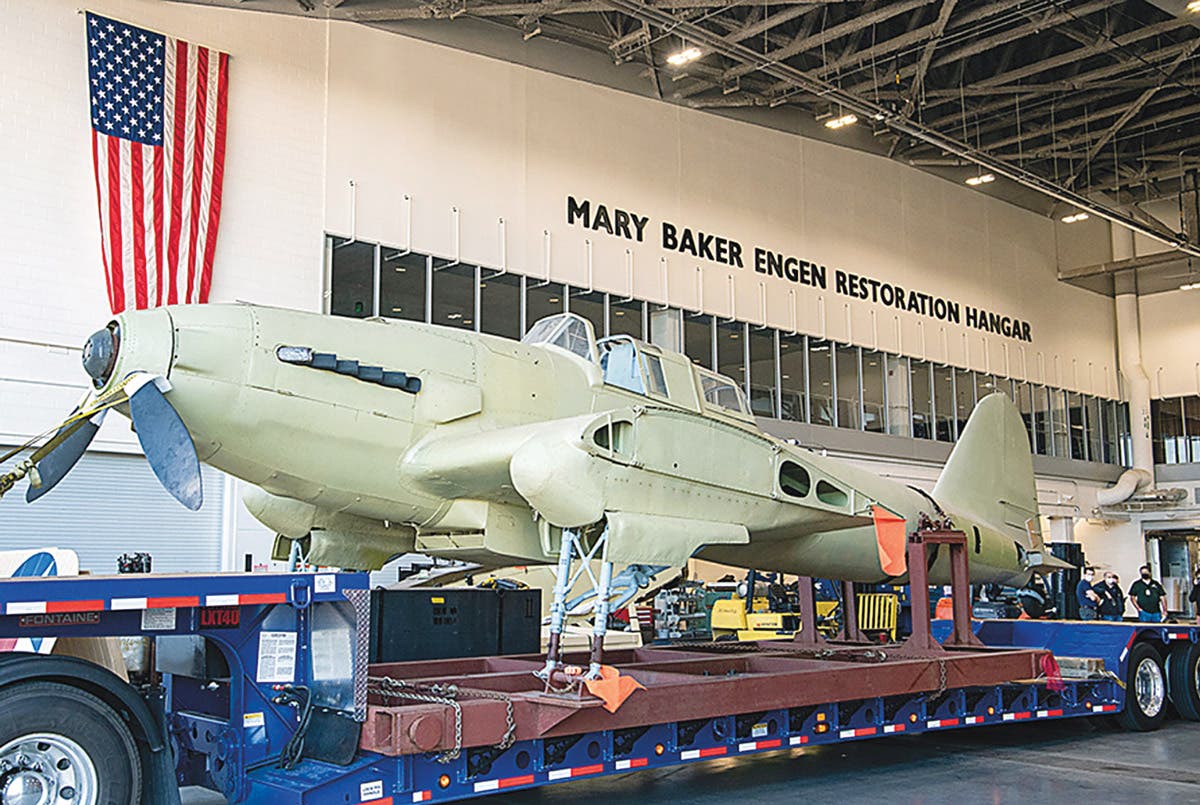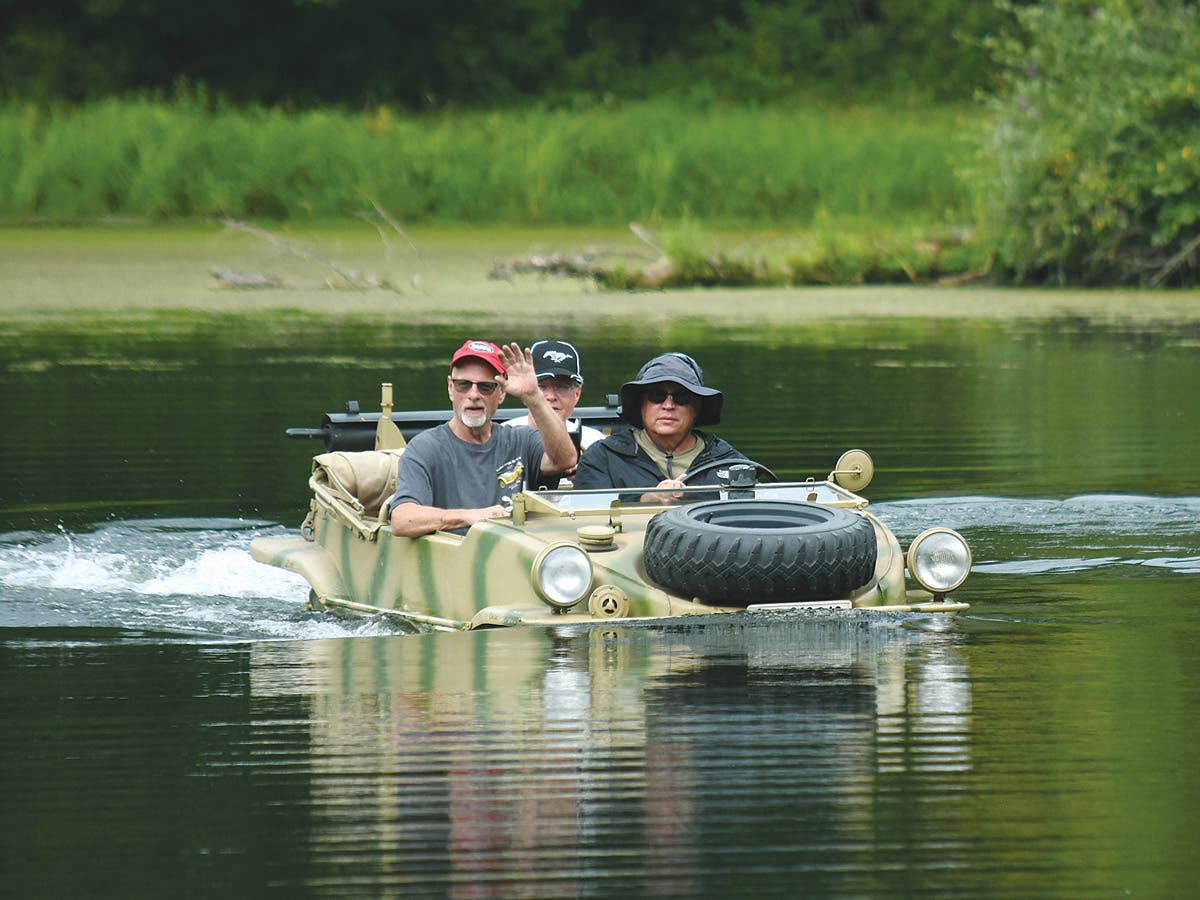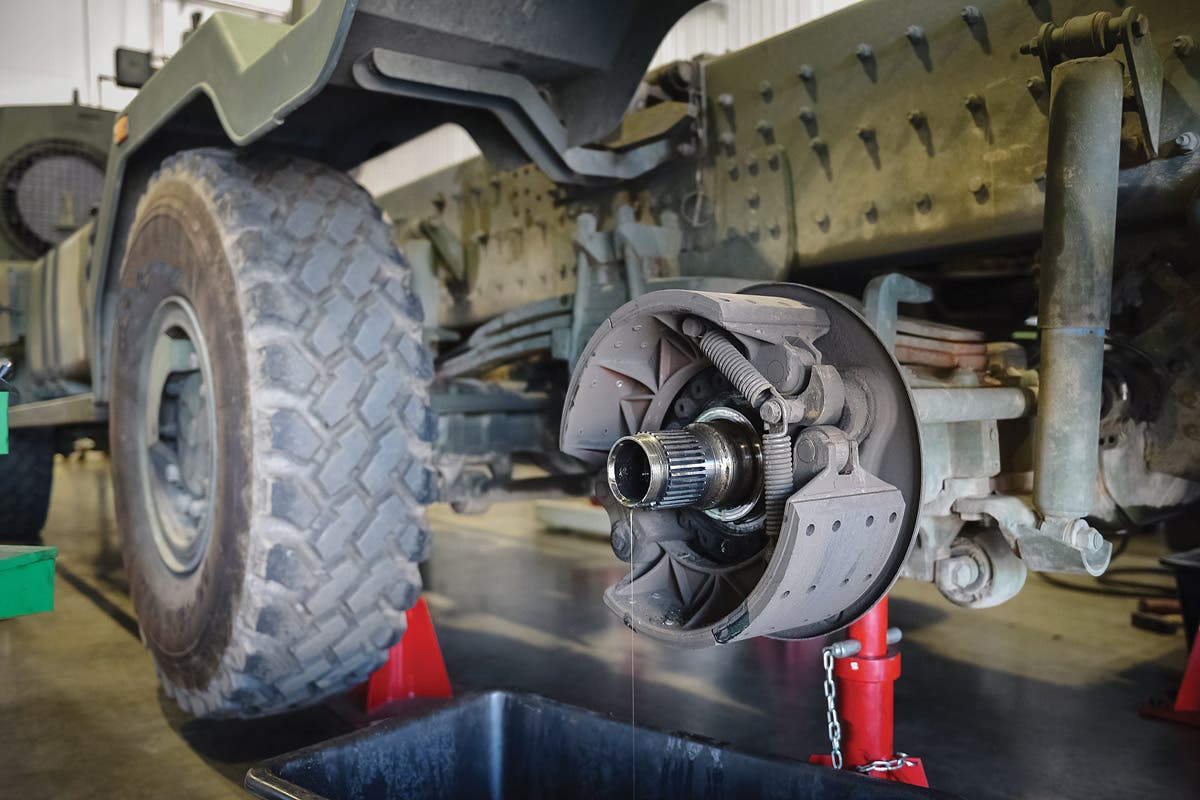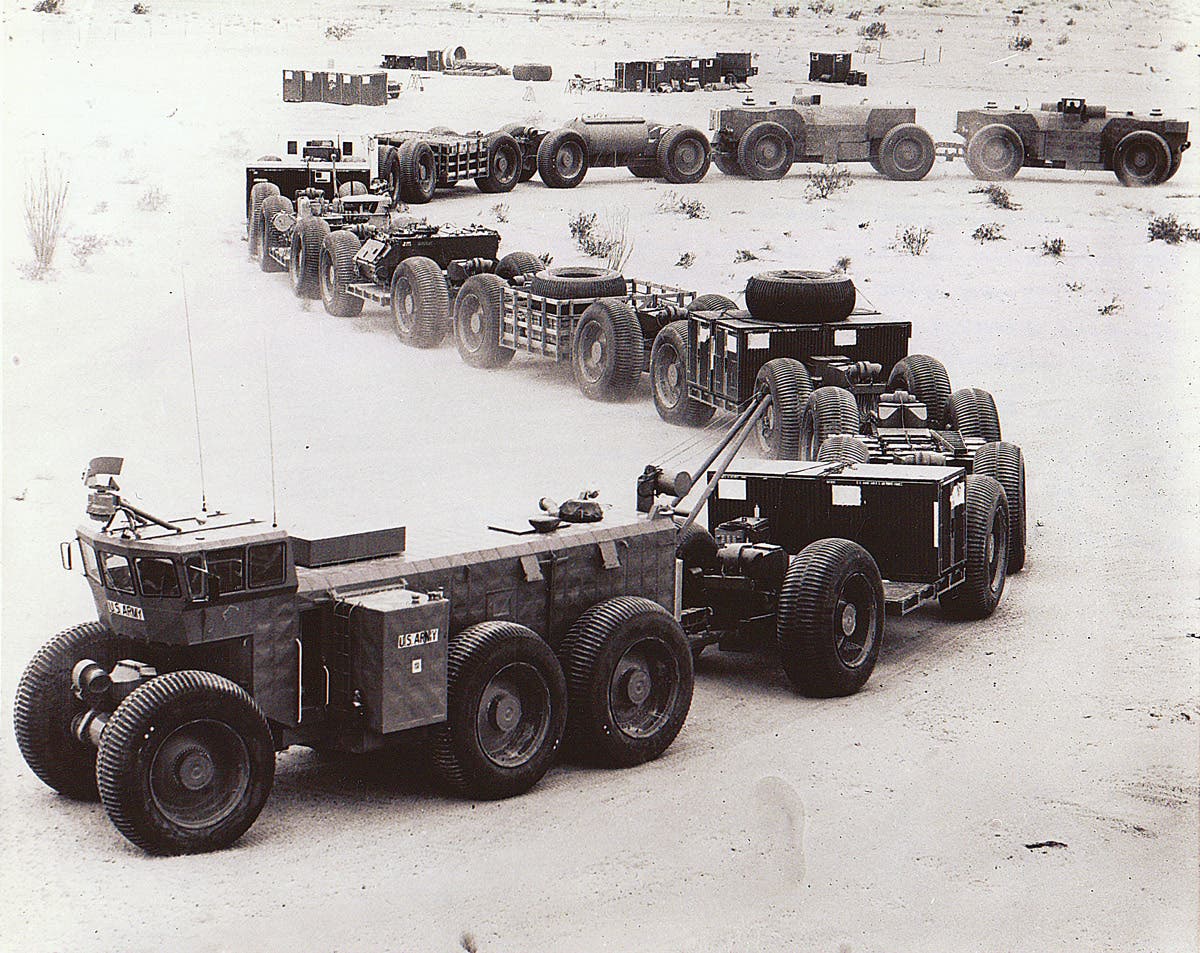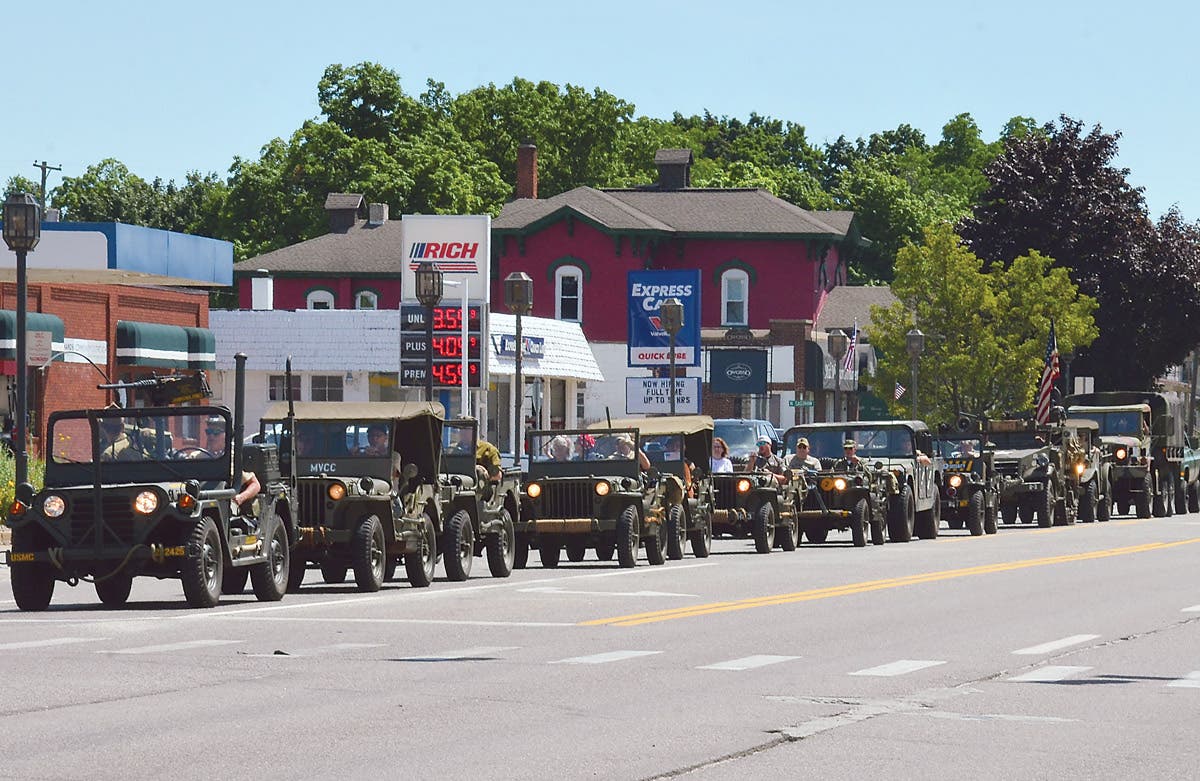60 Years Serving the Hobby: Memphis Equipment Company
In 1946, Meryl Straugh founded Memphis Equipment Company. From its inception, Memphis Equipment (ME) has specialized in army and military all-wheel-drive surplus trucks and parts. The 6×6 and 4×4 surplus government vehicle that they have reconditioned and sold have found their way into almost every part of American industry. Ride along as John Adams-Graf heads to “downtown Memphis” to see this “hallowed ground” in person
Driving from Wisconsin to Little Rock, Arkansas, for the 32nd Annual Military Vehicle Preservation Association's convention, I spent some time thinking about the hobby. It occurred to me that, even though the antique car hobby had blossomed prior to WWII, there really was no "military vehicle" hobby prior to 1946. The flood of inexpensive, surplus vehicles that hit the market after WWII really was the genesis of the hobby. As I rounded Memphis, it occurred to me that I was driving past the epicenter of the MV "Big Bang"--the place where it all began. Detouring from the Interstate, I pointed for "downtown Memphis" to see this "hallowed ground" in person.
When Memphis Equipment started businesses 60 years ago, WWII trucks were the staple of the South Third Street business. Today, the same building is still part of the 11-acre Memphis Equipment's expansive military surplus truck and parts operation.WHY MEMPHIS?When war began in Europe in 1939, the urgency of rearming and raising a mass army became critical. By October 31, 1940 the Quartermaster Corps controlled only 7.7 million square feet of storage space in twelve depots. Storage requirements--estimated to be 17.5 square feet per serviceman--revealed the inadequacy of depot space for an army that would ultimately grow to over eight million. By Pearl Harbor, 11.5 million square feet were available in two new general depots and four new quartermaster depots.
As early as December 1940, Memphis was under consideration by the War Department as a possible site for a storage depot. The first public intimation of the project came in The Commercial Appeal in late March 1941. The paper speculated that Park Field near Millington, a military base inactive since the end of WWI, might be chosen from four possible sites for the permanent location of the new depot.
In the middle of May, the true location and scope of the project became clear. A 500-acre parcel known as the Goodman Tract, near the Frisco railroad yards had been purchased for $175,000. Plans stated that the depot would house "everything needed by soldiers" (except ordnance). The Press-Scimitar described the new depot's size as large enough so that "16 major league baseball teams could play eight games simultaneously in the plant, with 30,000 fans in the stands at each game, and still have enough room left to play several football games." The report noted that the new depot would hold 1,000 rail freight cars. Colonel Hubert W. Beyette, the depot's construction quartermaster, boasted that two hundred entire freight trains could fit in the depot.
When someone visits Memphis Equipment today, they see an array of modern buildings and orderly rows of trucks.
The U.S. Army Corps of Engineers activated the Memphis General Depot in January 1942. The mission of the Depot was to supply the U.S. Army with food, clothing, tools, and engineering equipment. During WWII, the Depot also served as a prisoner of war camp for 800 prisoners. From 1942 until 1962, the installation performed important Army supply missions as the Memphis Quartermaster Depot, Memphis Army Service Forces Depot, and as the Memphis General Depot. In 1962, the installation became the Memphis Army Depot and, in 1964, began providing general supply support to all the military branches. The installation became one of the original Depots in the Defense Supply Agency (now the Defense Logistics Agency--DLA) and the name was changed to Defense Depot Memphis.
Huge amounts of surplus property had to be disposed of after the war ended. Organizations were created to reduce the stockpile, but the return on their sales was small, and they were soon disbanded. Property disposal later reappeared through the Federal Property and Administration Services Act of 1949. The act delegated surplus property to executive agencies, allowing Department of Defense to control its surplus property. Each military service was tasked to develop its own program. Regardless of what entity was tasked with selling the goods, surplus material flowed out of the Memphis Depot.
True to the role of revitalizing surplus material, some of the earliest buildings on the Memphis Equipment complex are WWII Quonset huts adapted for parts storage.
LARGEST MV AND PARTS DEALER
In 1946, Meryl Straugh founded Memphis Equipment Company. Straugh appointed Wayne Jordan to function as the company's president and together, the two quickly established Memphis Equipment as a handler of surplus vehicles and parts. By 1948, Straugh acquired property on Memphis' South Third Street. Sixty years later, Memphis Equipment still conducts business from the same location, having expanded its operation to cover nearly 11 acres.
From its inception, Memphis Equipment (ME) has specialized in army and military all-wheel-drive surplus trucks and parts. The 6x6 and 4x4 surplus government vehicle that they have reconditioned and sold have found their way into almost every part of American industry. Operations ranging from mining, construction and logging to , exploration, agriculture and fire fighting have all relied on Memphis Equipment to provide vehicles and parts capable of withstanding rough off-the-road jobs.
Today, 2-1/2-ton and 5-ton trucks fulfill the company's mission to sell refurbished and reconditioned trucks.
Initially, Memphis Equipment handled all military vehicles and surplus that the Depot surplus sales provided. During the late 1950s, however, it changed its focus to dealing strictly with trucks.
In the early 1960s, Memphis Equipment's truck purchasing and refurbishing operation had expanded to such a large scale, that it opened a second facility in Chambersburg, Pennsylvania, to take advantage of vehicle sales at Letterkenny Depot
FULLY PROCESSED OR "RECON"--YOUR CHOICE
Memphis Equipment Company offers military vehicles in two condition categories: "Fully Processed" or "Recon." A "Fully Processed" model has been remanufactured and is in like-new condition. A reconditioned, or "Recon," truck is a clean, low mileage model direct from government storage that has been reconditioned and mechanically upgraded. Memphis Equipment guarantees vehicles in both categories.
To recondition and refurbish military trucks, Memphis Equipment has seve ral areas to designated for specialized operations ranging from transmission and engine rebuilds to sheet metal fabrication and body work.
"Guarantees?" That is a bold statement to make, especially when dealing with surplus trucks. However, it is Memphis Equipment's reliance on the experience of the staff that gives them the courage to make such an offer.
Max May, the president of the company, has worked for Memphis Equipment for more than 35 years. Billy Thompson, the executive vice president and service manager along with Roy Coates, the parts manager have worked together for 25 years. Tripp Jones, vice president and sales manager (and devout military Jeep restorer), has been there for 22 years. John Browning, the assistant parts manager, has been handling the parts books and maintaining inventory since 1973. These people know their trucks. They, and the other 40+ employees at both the Memphis and Chambersburg branches have seen what can be problems and know how to address them before they occur. It is this sort of confidence that backs their warranties and guarantees.
FULL-TIME SHOP
The Memphis Equipment shop prepares and sells about 60-80 trucks a year. Deuces and 5-ton trucks are the company's "bread-and-butter," but the occasional M37, M715 or CUCV does pass through the yard.
VP Tripp Jones is standing at the switch of a crucial organs in Memphis Equipment's refurbishing and restoration body: a Pangborn steel shot wheel abrator "roto-blast" machine.
With more than 10,000 parts in inventory, Memphis staff can outfit a truck to meet a customer's specific needs. Perhaps because Memphis Equipment is an employee-owned company, each member of the team feels committed to building a truck that meets--and exceeds----the customer's expectations.
WORLD-WIDE BUSINESS
Memphis Equipment has shipped trucks to every continent. Though the method of acquiring new trucks has changed from the days of surplus sales or even DRMS ("Defense Reutilization and Marketing Service") auctions, the ME staff continues to buy trucks. Generally, ME staff travels to inspect vehicles in government surplus sealed bid sales, live auctions and on-line auctions. "sealed bid" auctions. Tripp Jones noted, however, that they buy trucks in lots--Memphis Equipment rarely, if ever, will purchase a truck from an individual where the truck has been in civilian use, though it seems hardly a day passes when he doesn't receive a call from a collector wanting to sell one.
All of painting of the refurbished trucks is done in Memphis Equipment's own paint booth.
On an average day, the company ships between 60 and 70 parcels a day--not counting motor freight. That would be another 10-15 loads each day. One staff member is dedicated to picking up or delivering trucks.
DEDICATED TO THE HOBBY
With more than 60 years in the business, Memphis Equipment has witnessed the business of surplus trucks transcend from inexpensive heavy equipment to desirable collector vehicles. The staff has seen their share of rare items and recognize the demand among collectors. Even though vehicle collectors are actually a rather small part of Memphis Equipment's business, Tripp Jones was quick to note, "We are dedicated to serving the hobbyist." Indeed, pallets filled with trucks parts were earmarked for the MVPA Convention. The staff knows the kind of parts collectors need, so make an effort to set up at shows and take an active role in the hobby.
To service the scale of Memphis Equipment's operations, the company has rows of 2-1/2-ton and 5-ton (and a mix of other) "donor trucks." These are covered with hand-markings that correlate to the company's database. At a moment's notice, staff can determine if they have a particular part on hand.
This is an example of a truck that was reconditioned to a customer's specification for industrial use. Of course, Memphis Equipment will restore a truck to "as-delivered-by-the-military" if a customer requests it. "Recon" trucks come with a 30-day warranty on parts. A refurbished truck comes with a six-month warranty.
Memphis Equipment does maintain a "sales room" but that is more show than practical. Parts are housed in a number of structures on the 11-acre site. A fastidious computerized inventory enables same day-shipping on most orders. Customers are encouraged to check the online catalog at www.memphisequipment.com.
John Adams-Graf ("JAG" to most) is the editor of Military Trader and Military Vehicles Magazine. He has been a military collector for his entire life. The son of a WWII veteran, his writings carry many lessons from the Greatest Generation. JAG has authored several books, including multiple editions of Warman's WWII Collectibles, Civil War Collectibles, and the Standard Catalog of Civil War Firearms. He is a passionate shooter, wood-splitter, kayaker, and WWI AEF Tank Corps collector.

